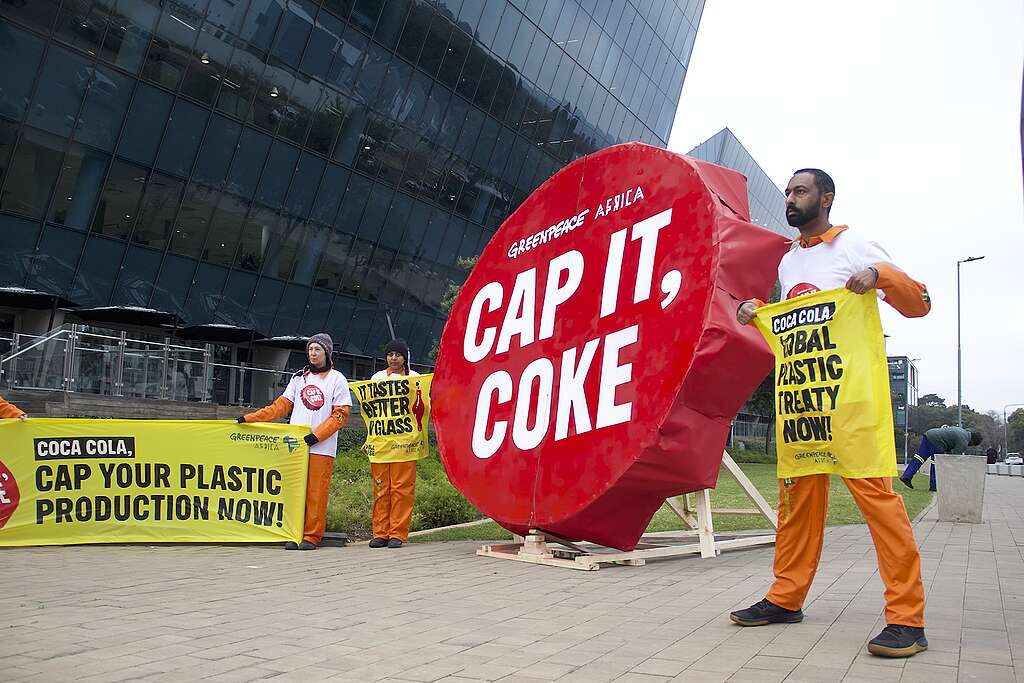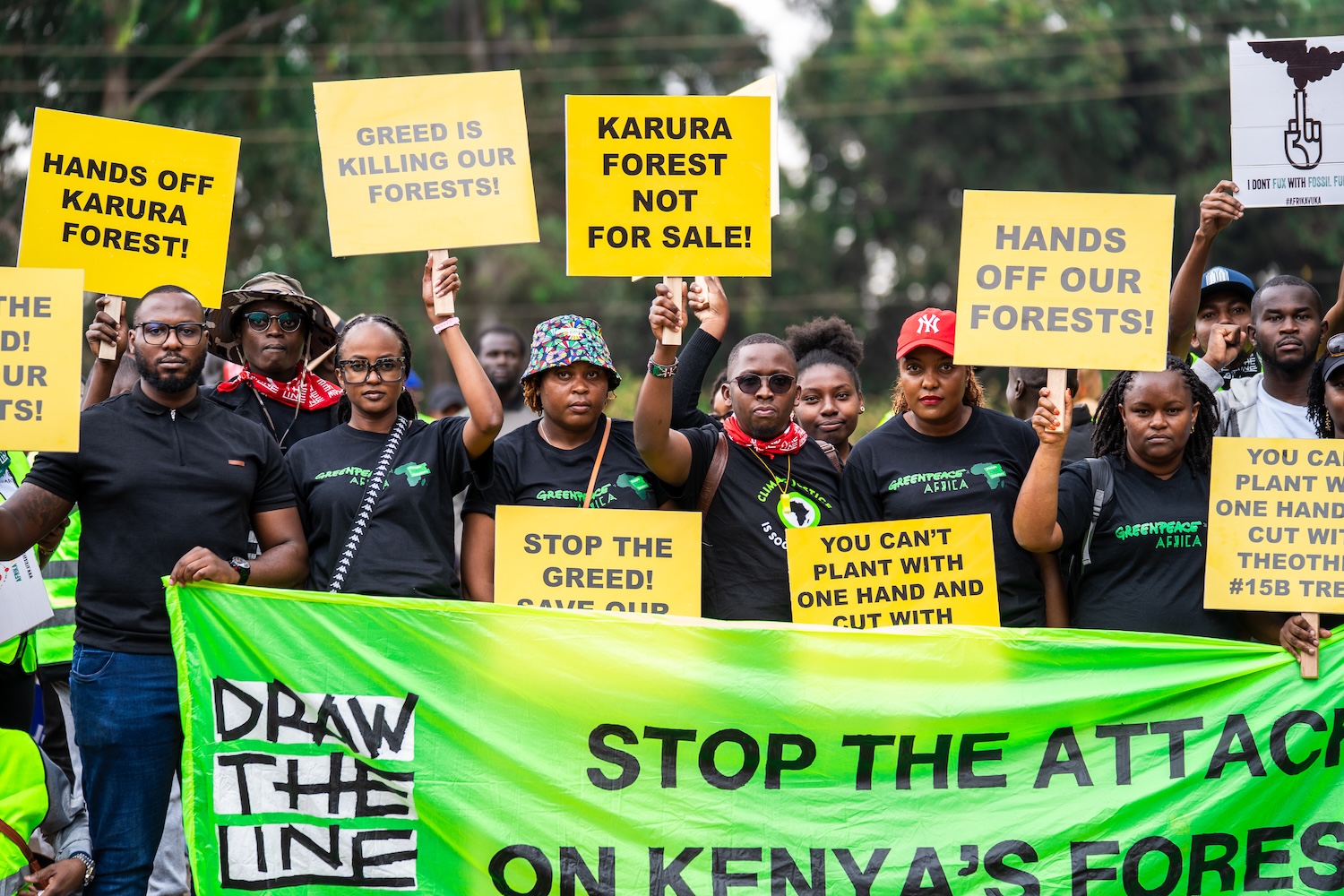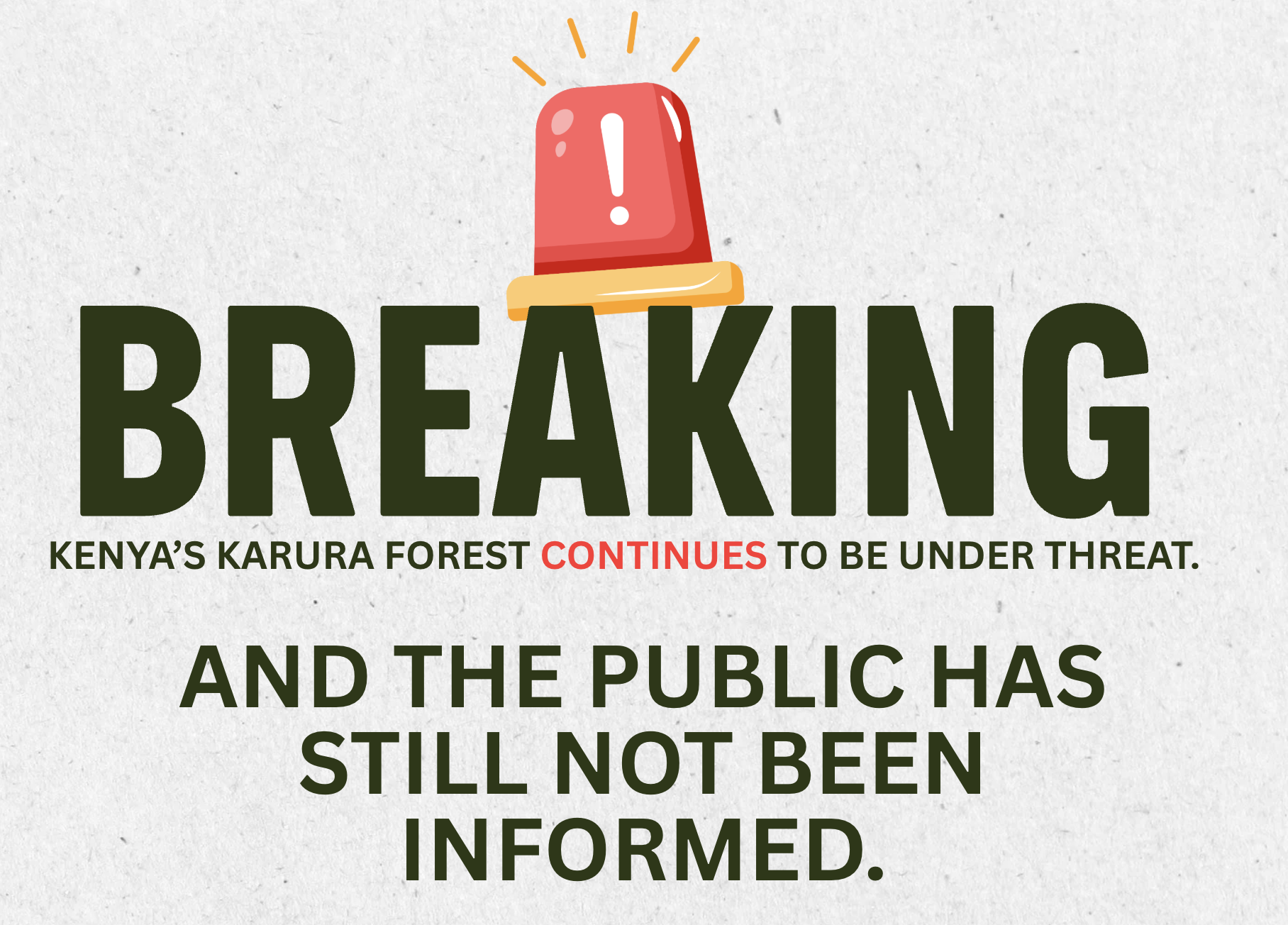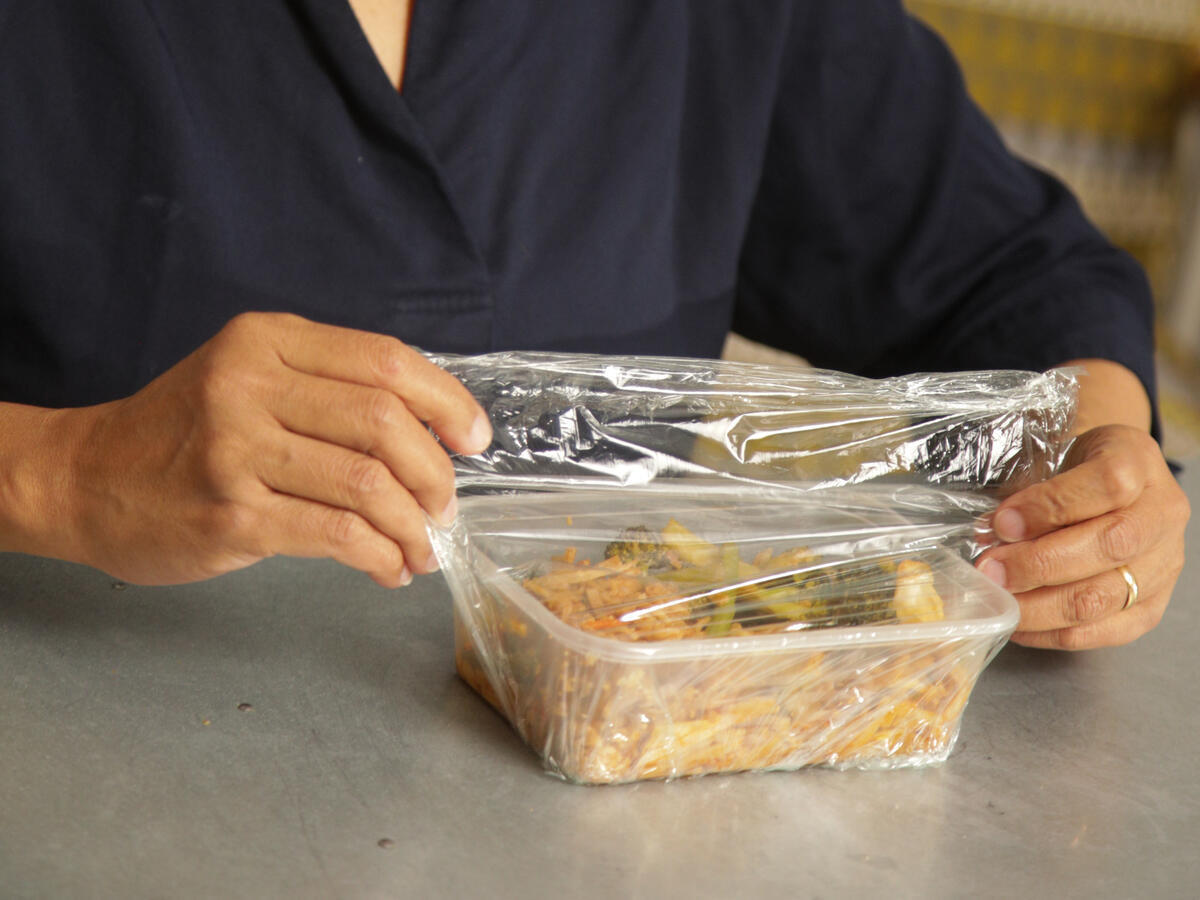
Photos: click here to view
Activists demand Coca-Cola cap plastic production as company produces 120 billion throwaway bottles annually
JOHANNESBURG, SOUTH AFRICA – June 5, 2025: On World Environment Day, Greenpeace Africa activists staged a demonstration outside Coca-Cola’s corporate offices in Rosebank, Johannesburg, with a striking 3-meter by 3-meter glass bottle cap installation and activists wearing elaborate costumes constructed from plastic waste. The action highlighted Coca-Cola’s status as the world’s number one plastic polluter for six consecutive years.
The visual spectacle included activists displaying banners reading “Cap it Coke” and “It tastes better in glass” as a demonstration for Coca-Cola to return to its iconic glass bottle packaging. The centrepiece was a towering glass bottle cap prop, symbolising the transition from single-use plastic bottles back to refillable glass alternatives that Coca-Cola once championed.
Hellen Kahaso Dena, Project Lead, Pan-African Plastics Project for Greenpeace Africa said:
“If Coca-Cola is really serious about solving the plastic and climate crisis, it needs to stop its greenwashing, cap its plastic production and invest in refill and reuse. Ending Coca-Cola’s addiction to single-use plastic is an important step in moving away from fossil fuels, protecting communities in Africa, and combating the climate crisis.”
One activist, dressed in an elaborate theatrical costume constructed entirely from discarded plastic bottles and waste, moved through the demonstration space as a living embodiment of the pollution crisis caused by the beverage giant’s relentless production of throwaway packaging. The costume, created in collaboration with local artists, transformed plastic waste into an artistic statement about corporate responsibility and environmental destruction.
“While big corporations like Coca-cola keep churning out single-use plastics and reaping millions in profit margins, waste pickers are left to deal with the consequences, sorting through mountains of waste for the tiny fraction that can be recycled,” added Dena.
The timing of the action is particularly significant as it comes at a time when the Global Plastics Treaty (INC-5) negotiations failed to deliver a binding document, after which Coca-Cola lowered its environmental commitments. The company extended its sustainability timeline to 2035 and reduced its targets, now aspiring to achieve only 40% recycling in primary packaging and collect 75% of bottles and cans marketed.
However, Coca-Cola has continued what activists describe as a “greenwashing spree,” making superficial design changes rather than addressing the root cause of plastic pollution. In 2023, the company changed its green Sprite bottle to a clear colour claiming improved recyclability. But critics suggest this merely changed the colour of plastic waste entering landfills and oceans.
“This is corporate greenwashing at its worst. Instead of performative solutions, Coca-Cola should implement robust refill and reuse systems, cap plastic production, and advocate for a strong Global Plastic Treaty that addresses the crisis at its source,” concluded Dena.
Over 99% of plastics derive from fossil fuels, directly linking plastic production to the climate crisis. The crisis affects the same communities that consume Coca-Cola products. The company’s business model relies heavily on fossil fuel extraction, contradicting any meaningful climate commitments.
The action concluded with activists attempting to deliver their demands directly to Coca-Cola’s senior management, including CEO Sunil Gupta, CFO Norton Kingwill, and Sustainability Officer Layla Jeevanantham. No Coca-Cola representative appeared to meet the activists, and the memorandum was left at their doorstep alongside a trophy for World’s No. 1 Polluter.
Greenpeace Africa’s demands to Coca-Cola:
- Reduce single-use plastic packaging and invest in refill and reuse systems
- Bring back glass bottles and scale up refillable options
- Cap plastic production rather than extending inadequate timelines
- Become a vocal advocate for a Global Plastics Treaty that delivers production caps and phase-downs
- Support just transition for waste workers to decent working conditions away from plastic value chains
About Greenpeace Africa:
Greenpeace Africa works to expose global environmental problems and promote solutions that are essential to a green and peaceful future. The organisation campaigns to protect biodiversity, promote renewable energy, and hold corporations accountable for environmental destruction.
Editor’s Notes:
- The Theme for World Environment Day 2025 “Beat Plastic Pollution”
- Coca-Cola has been named the top global plastic polluter for six consecutive years by Break Free From Plastic brand audits.
- The world produces more than 430 million tonnes of plastic annually, two-thirds of which become waste.
- Only 9% of all plastic ever produced has been recycled globally.
Media Contact:
Ferdinand Omondi, Communication and Story Manager, Greenpeace Africa, Phone: +254 722 505 233, Email: [email protected]



